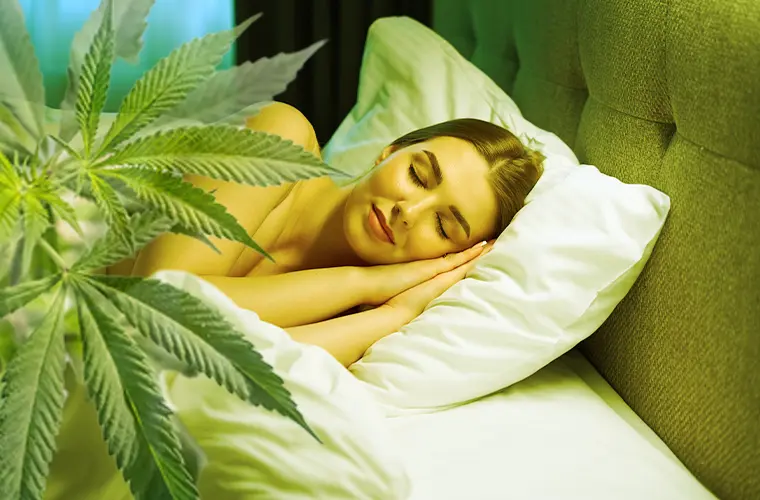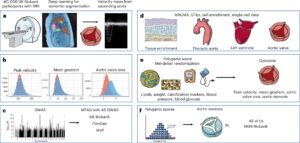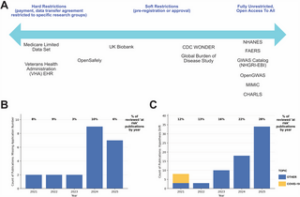
For millions around the globe, achieving a restful night’s sleep remains a challenging endeavor. Chronic insomnia affects approximately 6–10% of adults, while nearly half of the population will experience short-term sleeplessness at some point in their lives. Traditional medications, such as benzodiazepines and orexin receptor antagonists, offer temporary relief but often come with side effects, high costs, or limited accessibility.
Now, a groundbreaking study suggests that medical cannabis could provide a promising alternative for insomnia treatment, igniting hope for more effective sleep therapies. Conducted by researchers at Imperial College London in collaboration with the UK Medical Cannabis Registry (UKMCR), the study analyzed outcomes in 124 patients diagnosed with primary insomnia who were prescribed cannabis-based medicinal products (CBMPs).
Study Findings and Implications
The findings, published in PLOS Mental Health, reveal that patients reported significant improvements in sleep quality, anxiety, and overall quality of life. However, the benefits appeared to diminish over time, raising questions about long-term effectiveness and tolerance. “The study demonstrated improvements in subjective sleep quality and other captured PROMs in insomnia patients treated with cannabis-based medicinal products,” the researchers noted.
Tracking participants over 18 months, the study stands as one of the longest real-world examinations of medical cannabis use for insomnia. Initial improvements in sleep quality scores were notable, more than doubling in the first month from an average of 2.66 to 5.67 on the Single-Item Sleep Quality Scale. These gains persisted for three to six months but declined by the 12- and 18-month marks, though still statistically better than baseline.
“Over an 18-month period, our study showed that treatment for insomnia with cannabis-based medicinal products was associated with sustained improvements in subjective sleep quality and anxiety symptoms,” said Dr. Simon Erridge, co-author and Research Director at Curaleaf Clinic, London.
Challenges and Considerations
Notably, only 8.9% of participants reported side effects, mostly mild or moderate, such as fatigue and dry mouth. Ironically, insomnia itself accounted for the highest number of moderate or severe cases, with no disabling or life-threatening effects observed.
The study highlights the increasing interest in cannabis-based therapies. Despite its anecdotal use as a sleep aid, formal research has been hampered by regulatory challenges. In the UK, medical cannabis was legalized in 2018, but prescriptions remain restricted to patients who have exhausted conventional treatments. In contrast, access in the United States is broader, with 40 states permitting medical use and 24 allowing recreational use.
Variability and Tolerance Concerns
Participants in the study had confirmed insomnia diagnoses and had previously tried and failed at least two other licensed sleep medications before turning to cannabis. The most common form of CBMP prescribed was dried cannabis flower, often inhaled, though oils were also used. THC dosages increased significantly over the study period, from a median of 20 mg per day at baseline to 120 mg after 18 months, with CBD intake also rising modestly.
“Notably, this apparent reduction in treatment effect over time coincided with increasing doses of both CBD and THC, suggesting that participants may have developed tolerance to the therapeutic effects of cannabis-based medicinal products,” the researchers wrote.
Another challenge is the wide variability in cannabis formulations. Unlike pharmaceuticals with standardized active ingredients, cannabis-based medicines can contain different ratios of THC, CBD, and other cannabinoids like cannabinol (CBN). This variability complicates determining what specifically drives improvements in sleep.
Future Directions and Expert Opinions
While real-world data like this study is valuable, the authors stress that only large-scale randomized controlled trials (RCTs) can definitively establish safety and efficacy. “Although the treatment was generally well-tolerated, randomized controlled trials are needed to confirm the effectiveness and safety of cannabis-based medicinal products,” the researchers cautioned.
The findings also suggest potential crossover benefits for mental health. Anxiety and insomnia are often interlinked, creating a cycle of hyperarousal and poor rest. By reducing anxiety in the early months of treatment, cannabis may indirectly improve sleep quality, though the long-term impact remains uncertain.
Importantly, the researchers acknowledge several limitations, including the lack of a placebo control, reliance on self-reported measures, and a relatively small sample size drawn primarily from private clinics. Many participants also had prior recreational cannabis experience, which could influence expectations and outcomes.
Nevertheless, the study contributes significantly to an underexplored area of medical cannabis research. With insomnia impacting productivity, mental health, and cardiovascular health, new therapeutic avenues are urgently needed. While cognitive behavioral therapy for insomnia (CBT-I) remains the gold standard, access is limited, and medications often fall short.
Medical cannabis could potentially become part of the therapeutic toolkit, especially for patients who have exhausted other options. However, the path to clinical acceptance will require rigorous testing and long-term follow-up. For now, patients and physicians must weigh the early promise of cannabis-based insomnia treatments against the unanswered questions of tolerance, variability, and long-term effectiveness.






